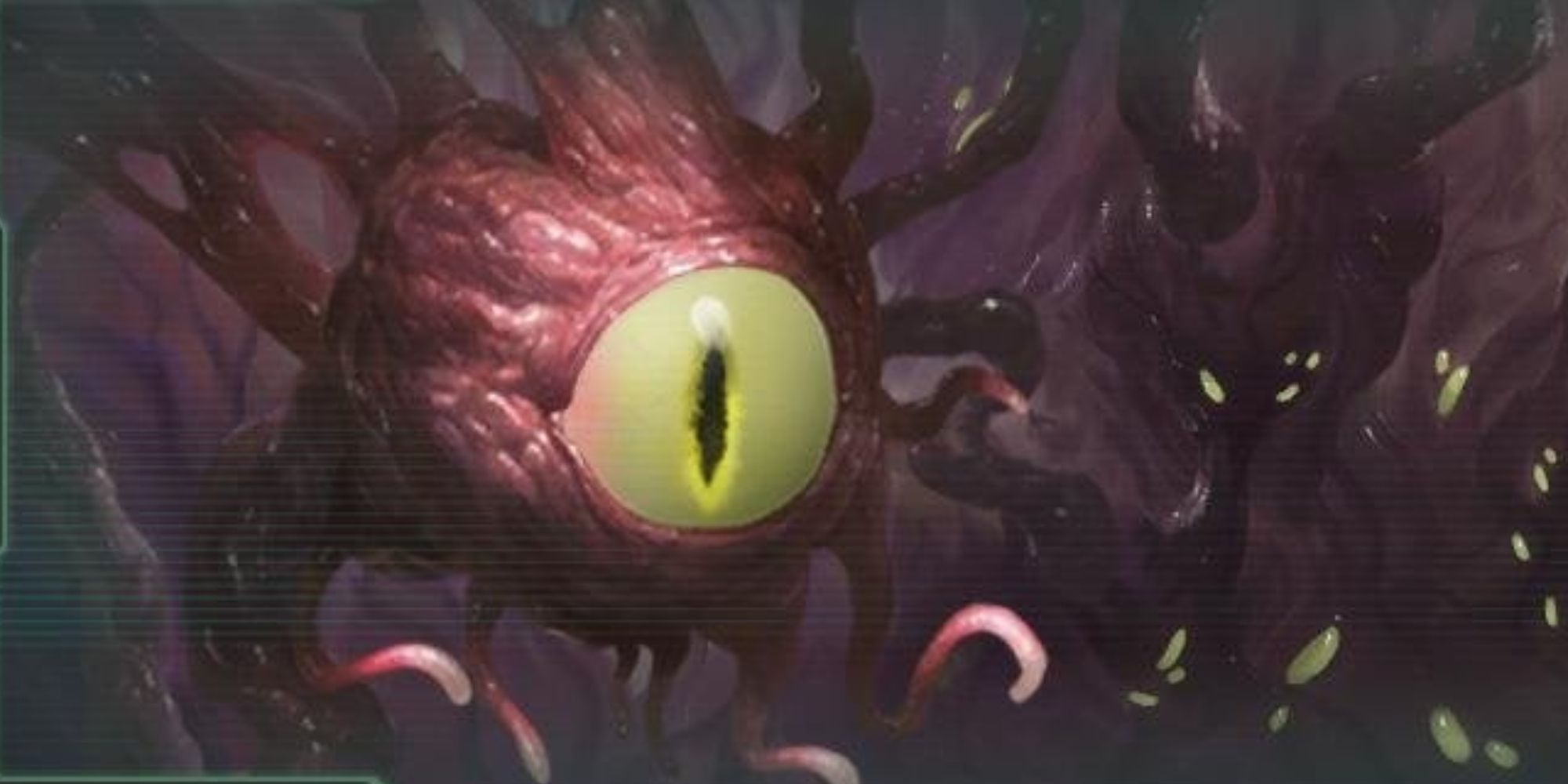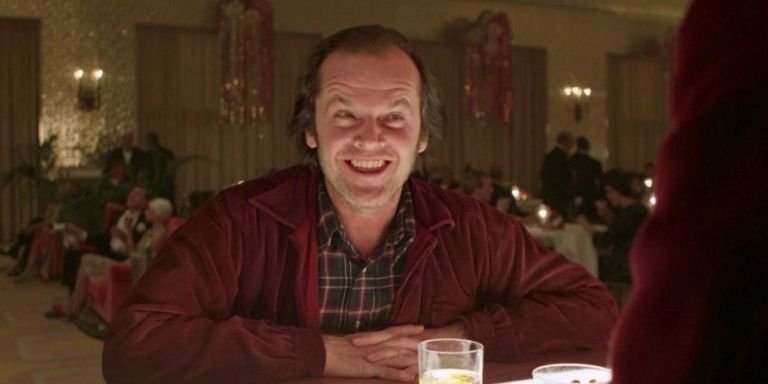- cross-posted to:
- [email protected]
- [email protected]
- [email protected]
- cross-posted to:
- [email protected]
- [email protected]
- [email protected]
tl;dr - a small number of bad actors are causing too much trouble, so the owner is pulling the plug on Omegle rather than continuing to fight uphill against it. The post is also a sad farewell letter where Leif reminisces a bit about the old internet and how people used to actually use it to not be total assholes to strangers all the time
Relevant bits:
In recent years, it seems like the whole world has become more ornery. Maybe that has something to do with the pandemic, or with political disagreements. Whatever the reason, people have become faster to attack, and slower to recognize each other’s shared humanity. One aspect of this has been a constant barrage of attacks on communication services, Omegle included, based on the behavior of a malicious subset of users.
The battle for Omegle has been lost, but the war against the Internet rages on. Virtually every online communication service has been subject to the same kinds of attack as Omegle; and while some of them are much larger companies with much greater resources, they all have their breaking point somewhere. I worry that, unless the tide turns soon, the Internet I fell in love with may cease to exist, and in its place, we will have something closer to a souped-up version of TV – focused largely on passive consumption, with much less opportunity for active participation and genuine human connection. If that sounds like a bad idea to you, please consider donating to the Electronic Frontier Foundation, an organization that fights for your rights online.
I never used the site but as far as I’ve seen, whenever you encounter an asshole the only option was to skip to the next person. Was there a report button? A voting system might have worked, where down voted people or bots would be isolated and excluded from the community.
Not sure that existed, but how would it work? There were no accounts and IPs are ephemeral.
Probably UUIDs based on fingerprinting the browser/machine. With enough js there’s usually enough to qualify a person’s activity as unique even with minor changes regarding updates or whatever. You can mitigate it by changing user agent strings or disabling some/all js or site permissions, but they can also block you from using the service for doing so, so ¯\_(ツ)_/¯.
Should have left the site up and sold it to the DOJ. It’s a steady stream of chomos for them to arrest and use the site like hireahitman.com turned out.
“Small number”
Really making that phrase do a lot of work here aren’t you?
This comment could have been formulated in a non-aggressive tone, as a question or opinion, or reasoned criticism. Instead they chose a passive aggressive tone.
Really ironic and sad in the context of this topic, and right below the quotes like
people have become faster to attack, and slower to recognize each other’s shared humanity.
This being the internet, allow me to point out to you that also people have become faster to attack, and slower to recognize each other’s sharing of your mom.
Oh fucking well. I don’t play this “be nice to the pedos” game.
I haven’t been on omegle in years, how bad was the problem? Does it warrant labeling everyone who used the site for good reasons a pedo?
how bad was the problem.
So bad they shut down. The rest of your inquiry is in bad faith so I’m ignoring it.
How is it bad faith to suggest not labeling millions of people as pedo who aren’t? There’s plenty of genuinely human / funny content on YouTube from over the years of stuff that happened on omegle. It sucks that the platform is evaporating. But I agree, if there was a huge problem of pedos and predators that couldn’t be controlled closing is probably for the best. People that remember their random adventures on omegle positively and are talking about ways this could’ve been controlled / avoided aren’t pedo sympathizers. They’re just nostalgic. No one here is suggesting to fortify a hangout space for pedos. Everyone is trying to keep those people out.
And no self awareness in sight.
Here is a copy of the text on the website because I believe it does a very good job at pointing out the issues in current society:
Dear strangers,
From the moment I discovered the Internet at a young age, it has been a magical place to me. Growing up in a small town, relatively isolated from the larger world, it was a revelation how much more there was to discover – how many interesting people and ideas the world had to offer.
As a young teenager, I couldn’t just waltz onto a college campus and tell a student: “Let’s debate moral philosophy!” I couldn’t walk up to a professor and say: “Tell me something interesting about microeconomics!” But online, I was able to meet those people, and have those conversations. I was also an avid Wikipedia editor; I contributed to open source software projects; and I often helped answer computer programming questions posed by people many years older than me.
In short, the Internet opened the door to a much larger, more diverse, and more vibrant world than I would have otherwise been able to experience; and enabled me to be an active participant in, and contributor to, that world. All of this helped me to learn, and to grow into a more well-rounded person.
Moreover, as a survivor of childhood rape, I was acutely aware that any time I interacted with someone in the physical world, I was risking my physical body. The Internet gave me a refuge from that fear. I was under no illusion that only good people used the Internet; but I knew that, if I said “no” to someone online, they couldn’t physically reach through the screen and hold a weapon to my head, or worse. I saw the miles of copper wires and fiber-optic cables between me and other people as a kind of shield – one that empowered me to be less isolated than my trauma and fear would have otherwise allowed.
I launched Omegle when I was 18 years old, and still living with my parents. It was meant to build on the things I loved about the Internet, while introducing a form of social spontaneity that I felt didn’t exist elsewhere. If the Internet is a manifestation of the “global village”, Omegle was meant to be a way of strolling down a street in that village, striking up conversations with the people you ran into along the way.
The premise was rather straightforward: when you used Omegle, it would randomly place you in a chat with someone else. These chats could be as long or as short as you chose. If you didn’t want to talk to a particular person, for whatever reason, you could simply end the chat and – if desired – move onto another chat with someone else. It was the idea of “meeting new people” distilled down to almost its platonic ideal.
Building on what I saw as the intrinsic safety benefits of the Internet, users were anonymous to each other by default. This made chats more self-contained, and made it less likely that a malicious person would be able to track someone else down off-site after their chat ended.
I didn’t really know what to expect when I launched Omegle. Would anyone even care about some Web site that an 18 year old kid made in his bedroom in his parents’ house in Vermont, with no marketing budget? But it became popular almost instantly after launch, and grew organically from there, reaching millions of daily users. I believe this had something to do with meeting new people being a basic human need, and with Omegle being among the best ways to fulfill that need. As the saying goes: “If you build a better mousetrap, the world will beat a path to your door.”
Over the years, people have used Omegle to explore foreign cultures; to get advice about their lives from impartial third parties; and to help alleviate feelings of loneliness and isolation. I’ve even heard stories of soulmates meeting on Omegle, and getting married. Those are only some of the highlights.
Unfortunately, there are also lowlights. Virtually every tool can be used for good or for evil, and that is especially true of communication tools, due to their innate flexibility. The telephone can be used to wish your grandmother “happy birthday”, but it can also be used to call in a bomb threat. There can be no honest accounting of Omegle without acknowledging that some people misused it, including to commit unspeakably heinous crimes.
I believe in a responsibility to be a “good Samaritan”, and to implement reasonable measures to fight crime and other misuse. That is exactly what Omegle did. In addition to the basic safety feature of anonymity, there was a great deal of moderation behind the scenes, including state-of-the-art AI operating in concert with a wonderful team of human moderators. Omegle punched above its weight in content moderation, and I’m proud of what we accomplished.
Omegle’s moderation even had a positive impact beyond the site. Omegle worked with law enforcement agencies, and the National Center for Missing and Exploited Children, to help put evildoers in prison where they belong. There are “people” rotting behind bars right now thanks in part to evidence that Omegle proactively collected against them, and tipped the authorities off to.
All that said, the fight against crime isn’t one that can ever truly be won. It’s a never-ending battle that must be fought and re-fought every day; and even if you do the very best job it is possible for you to do, you may make a sizable dent, but you won’t “win” in any absolute sense of that word. That’s heartbreaking, but it’s also a basic lesson of criminology, and one that I think the vast majority of people understand on some level. Even superheroes, the fictional characters that our culture imbues with special powers as a form of wish fulfillment in the fight against crime, don’t succeed at eliminating crime altogether.
In recent years, it seems like the whole world has become more ornery. Maybe that has something to do with the pandemic, or with political disagreements. Whatever the reason, people have become faster to attack, and slower to recognize each other’s shared humanity. One aspect of this has been a constant barrage of attacks on communication services, Omegle included, based on the behavior of a malicious subset of users.
To an extent, it is reasonable to question the policies and practices of any place where crime has occurred. I have always welcomed constructive feedback; and indeed, Omegle implemented a number of improvements based on such feedback over the years. However, the recent attacks have felt anything but constructive. The only way to please these people is to stop offering the service. Sometimes they say so, explicitly and avowedly; other times, it can be inferred from their act of setting standards that are not humanly achievable. Either way, the net result is the same.
Omegle is the direct target of these attacks, but their ultimate victim is you: all of you out there who have used, or would have used, Omegle to improve your lives, and the lives of others. When they say Omegle shouldn’t exist, they are really saying that you shouldn’t be allowed to use it; that you shouldn’t be allowed to meet random new people online. That idea is anathema to the ideals I cherish – specifically, to the bedrock principle of a free society that, when restrictions are imposed to prevent crime, the burden of those restrictions must not be targeted at innocent victims or potential victims of crime.
Consider the idea that society ought to force women to dress modestly in order to prevent rape. One counter-argument is that rapists don’t really target women based on their clothing; but a more powerful counter-argument is that, irrespective of what rapists do, women’s rights should remain intact. If society robs women of their rights to bodily autonomy and self-expression based on the actions of rapists – even if it does so with the best intentions in the world – then society is practically doing the work of rapists for them.
Fear can be a valuable tool, guiding us away from danger. However, fear can also be a mental cage that keeps us from all of the things that make life worth living. Individuals and families must be allowed to strike the right balance for themselves, based on their own unique circumstances and needs. A world of mandatory fear is a world ruled by fear – a dark place indeed.
I’ve done my best to weather the attacks, with the interests of Omegle’s users – and the broader principle – in mind. If something as simple as meeting random new people is forbidden, what’s next? That is far and away removed from anything that could be considered a reasonable compromise of the principle I outlined. Analogies are a limited tool, but a physical-world analogy might be shutting down Central Park because crime occurs there – or perhaps more provocatively, destroying the universe because it contains evil. A healthy, free society cannot endure when we are collectively afraid of each other to this extent.
Unfortunately, what is right doesn’t always prevail. As much as I wish circumstances were different, the stress and expense of this fight – coupled with the existing stress and expense of operating Omegle, and fighting its misuse – are simply too much. Operating Omegle is no longer sustainable, financially nor psychologically. Frankly, I don’t want to have a heart attack in my 30s.
The battle for Omegle has been lost, but the war against the Internet rages on. Virtually every online communication service has been subject to the same kinds of attack as Omegle; and while some of them are much larger companies with much greater resources, they all have their breaking point somewhere. I worry that, unless the tide turns soon, the Internet I fell in love with may cease to exist, and in its place, we will have something closer to a souped-up version of TV – focused largely on passive consumption, with much less opportunity for active participation and genuine human connection. If that sounds like a bad idea to you, please consider donating to the Electronic Frontier Foundation, an organization that fights for your rights online.
From the bottom of my heart, thank you to everyone who used Omegle for positive purposes, and to everyone who contributed to the site’s success in any way. I’m so sorry I couldn’t keep fighting for you.
Sincerely, Leif K-Brooks Founder, Omegle.com LLC
The website was linked in the OP. Anyone can click on it and read it. You’re just creating an impossibly long repost to scroll past.
Thanks for that.
I commented it as a way of archiving it on lemmy since it is federated and also archived it on Internet archives
Most lemmy clients let you shrink and expand comments so I don’t know ow why you didn’t do that instead if you didn’t want to scroll past my comment
The battle for Omegle has been lost, but the war against the Internet rages on. Virtually every online communication service has been subject to the same kinds of attack as Omegle; and while some of them are much larger companies with much greater resources, they all have their breaking point somewhere. I worry that, unless the tide turns soon, the Internet I fell in love with may cease to exist, and in its place, we will have something closer to a souped-up version of TV – focused largely on passive consumption, with much less opportunity for active participation and genuine human connection. If that sounds like a bad idea to you, please consider donating to the Electronic Frontier Foundation, an organization that fights for your rights online.
I don’t see how an organization that fights for my rights online is gonna stop people from being assholes tbh
Didn’t Omegle have issues with child porn.
“Genuine human connection.”
Look get the feeling of talking to people anonymously on the Internet but we aren’t going to turn to robots because a video service shut down.
Fuck platforms like Omegle. Until their are better ways of restricting behavior that harms minors on platforms like Omegle I will take this as an opportunity to say, “time to move one.”
EDIT: Didn’t think this comment would open up this many issues. It is clear that Lemmy blames parents for not knowing what their child is doing 24/7 because apparently parents should know everything their child is doing. What an ideal world. I still stand by the previous statement. Fuck Omegle and fuck anyone who thinks their isn’t an issue with child predators and Omegle and the abuse that has gone in their for years.
Let’s not forget SSSniperwolfs video of asking 16 year olds to flash on Omegle and monetizing that on YouTube.
You’re exactly the kind of person who would beg to shut down central park because someone got mugged there, just like he talks about in the article, which you clearly didn’t read.
You don’t need to read the article if you’ve ever been to omegle even once. Just because you’re desensitized to a bunch if dudes jacking off, doesn’t mean we should be. fuck omegle.
How did you get from child porn that harms minors to dudes jacking off? That’s not the same or equivalent.
Play stupid harder, pedo
Oh no, not the children!
Wouldn’t be an issue if parents properly monitored the kid’s Internet access.
deleted by creator
There’s child porn on the internet. Let’s ban the entire internet to stop it.
At least then I won’t have to read your dumb thoughts anymore.
Removed by mod
deleted by creator
I never used Omegle but got the impression it was basically “what if 4chan but video.”
You. You’re the problem. You’re what’s wrong with the internet.
Removed by mod
A single member of a collective doesn’t get to speak for the colective.
You see these little up and down arrows? They seem to indicate who is speaking for the collective or not.
deleted by creator
You already admitted you don’t even know anything about the site, your opinion is invalid. Thanks for playing.
deleted by creator
Reading the article it sounded more like he was tired of dealing with people who hated on the platform - like you.
They had moderators working full time and numerous protections in place (including AI that detected nudity). They actually led to the arrest of many paedophiles and had numoerous contacts with international law enforcement and child protection agencies.
If you read the article you’d see he was more ruined by the people screeching it needs to be shut down because it was a nest of paedos. People who’d probably never fucking used the site (like you) who’d just heard rumours (like you) and had no fucking clue about the moderation and arrests that went on in the background.
Guess what - paedos will always fucking exist. If anything Omegle was a honeypot for the stupid few who thought they could use it and get away with it only to find out they couldn’t and got arrested.
Instead now paedos will go elsewhere. More underground. Harder to find. Harder to catch.
Congratulations. You’re ignorant pearl clutching is precisely what the site admin couldn’t deal with anymore and you’ve made paedos harder to catch in the act.
I hope you’re proud.
I never used Omegle
Then why are you talking about it? Why come here just to spew completely uniformed conjecture?
deleted by creator
Why are you so vehemently defending a well known distribution point for pedophelia?
Do you see how little good rhetorical questions do?
If you are reading this, take 10 minutes to read the post. It’s worth it.
I did and kudos to him and his team for makikg the world a tiny better. But unfortunately it also had its negative sides to it… But he and his team can’t be blamed for what some assholes use his services for.
Yes. Even for people who don’t like reading the articles, this is not one to skip.
End of an era. I met my wife on Omegle.
Story time?
I was a weird 16 year old, staying up too late on summer vacation of 2011. I had decided that asking people their favorite dinosaur was the ultimate conversation starter, and had a working theory that the more unusual their answer was, the more interesting the conversation would be. People who said “T-Rex” were lame, but “Iguanadon” would be cool, something like that.
Well, she said “Pachycephalosaurus”, which was the first one of the night I had to look up. Naturally, I was enthralled.
We talked into the wee hours of the morning, where she (being a fellow dumb teenager) sent me her Facebook profile. Before clicking, I had decided that I would look but ultimately not accept her friend request, because stranger danger and all. But when I checked out her page, it turned out we had a mutual friend! A guy we both knew had started high school with her, and moved up the coast halfway through and was currently going to my high school.
That was good enough for me, and I accepted her friend request. July 7th, 2011, around 3am.
From there, we quickly turned flirty and started talking all the time. We weren’t anything official, but I told her I loved her within a couple weeks. One problem though: she was over 400 miles away, and I was still in school with no license.
To make a long story short, we were flirty on and off for the next three years until 2014, where we both decided “fuck it” and jumped into the special hell that is long distance dating together. I got to see her in person December 14th of that year after working at a grocery store while finishing up my associate’s degree to make enough money for a train ticket, and she was my first kiss.
Anyway, college sucked and long distance dating sucks even when it’s the right person. Fast-forward to 2020 when I finally have a car & some degree of financial stability, I moved 400 miles away to live with her & haven’t looked back. Put a ring on her finger March of 2021, and married her on the beach last weekend after knowing her for twelve years. She is currently snoring gracefully in bed next to me. 🥰
A also met my now wife on Omegle. I lived in Florida, she lived in Sweden. She lives with me here in FL now, been married for almost 10 years now. Crazy stuff!
I too met my wife on Omegle. It was in text chat. We were both around 14 years old at the time. I don’t remember what talked about but we ended up exchanging phone numbers. We texted for years and would sometimes play video games together.
Eventually towards the end of high school I was able to fly out to visit her. I did that a few times and was totally convinced at the point I was in love. So I moved across the country to be with her after graduation.
Married and few years ago and we’re 27 now so it’s been 13 years since we met on there. :)
That’s cute and amazing! Thanks for sharing
Hey my wife’s favorite dinosaur is also pachycechalosaurus. Good pick in my experience.
We need to know more!
Me too! My wife and I have been married for over 10 years now.
Kinda crazy how many of us met our partners on there lol. I’ve been married a similar amount of time. Wifey moved from Sweden to the US to me with me :)
Story time?
This is kind of sad. I’ve been using the site a fair amount recently to help get through some depressive episodes and the social withdrawal/isolation that come with them. Granted, about 50% of conversations were bots, and 40% were guys just looking for girls to send them nudes, but the other 10% or so was pretty interesting conversations.
I guess this will be the impetus to get back out and socialize IRL again. Or to find a new chat-with-randos service. Or to keep spiraling deeper into depression. We’ll see.
Edit: It was also kinda nice to be treated like a woman without being treated differently for being trans.
Chat Roulette was the original random video chat platform. It’s still on the go.
I hope you find better times ahead and find some new social outlets!
Omegle was a big website that millions of people uses that was created by just one guy. I think that part of the Internet is gone. Nowadays everyone wants something that already established and with how much it takes to run a website. The only people who can afford to run a website are big corporations. It’s a sad state of affairs.
Well if everyone didn’t expect everything for fucking free, entities other than ad dollar revenues might be able to start up platforms.
It’s SO silly that everyone expects all these services to be free. Absolutely asinine and not sustainable for anyone other than the biggest of conglomerates.
I wonder why none of us paid subscriptions to access websites in the 90s and early 2000s? We all used MySpace, FB, LiveJournal, Make Out Club, Hot or Not, Geocities, Angelfire, NeoPets, MSN messenger, AOL messenger, the millions of chat rooms. Etc etc. We paid for time on the internet itself (like we still do) but at least then you could find one of those AOL CD ROMs with free minutes just about anywhere. You couldn’t escape them.
There also weren’t that many ads, just some banners at the top. There were web rings and stuff to advertise each other’s sites. But it seems like once pop-up ads started, you couldn’t get rid of them ever again. There weren’t browser extensions or anything, pretty much just anti virus software you had to go to Frys to buy.
The answer to your question is those were unsustainable business models, and thats also why they failed.
To my point, cell phone games are a perfect example. Free to play games all fucking suck now, and nobody wants to pay for games so much, so developers don’t really focus on paid games, just paid upgrades, and promo packs etc.
I say all this, but I also recognize Freeware was basically pay to play/dlc also, and i loved the freeware method.
I used it only once and actually had a bit of small talk with someone from the Philippines. It was very exciting that I could just talk to someone from the other end of the world just like this.
That’s exactly why they created it.
Also as a rape survivor it allowed them to meet people without any real world risks.
thats out of left field.
I’d say it’s more likely from the right…
It’s without a doubt from the right.
Dude used to put right wing libertarian talking points on the Home Screen during elections.
I went on omegle not too long ago actually and the thing I remember was that the text version of the website was inundated with bots.
You had to skip through maybe 10-15 bots before you would find that one real person, and even then it was hit or miss whether they would actually want to stay and have a conversation.
Another thing: the constant “asl” as the top of every conversation; it’s like people were trying to use it as a hook-up / dating / sexting app rather than it’s actual purpose of connecting with people from around the world. I think that mission got lost somewhere.
The mission never got lost. It’s just become popular and thus attracted the average person, and most people do not care about “connecting with people” in the way that you maybe do. Has nothing to do with the site itself really.
asl
Wow, AOL is still a thing? … Maybe I never left. Maybe I’ve just been lost in AOL’s little… channel things, or whatever they were, for the past couple of decades. Please, somecritter come find me and get me out of here 🙀
Or maybe we’re all stuck in there. Maybe the real AOL is the average bellend doing the same vapid shite every day and every night. Maybe it never ends because people never change, as a mass, as the same mess they’ve always been.
Wooooah, trippy. Anyway I think I just kinda showerthoughtsed myself into rediscovering Eternal September, or at least kinda pondering the concept aloud.
I saw someone ASL a poster literally yesterday on LemmyNSFW.
asl goes way back to the nineties irc chatrooms. It was never a problem back then.
So many bots they spam their shit and leave for yet another bot to do the same they could have had a capcha or something to slow them down
They could have done a lot of things, and didn’t. The sob story is stupid as fuck. Too little, too late.
I checked it out a few times over the years, but was put off by the behavior of some of the people. The concept is fascinating because, as the founder mentions in his letter, there IS some safety in anonymity and expressing yourself more authentically without the physical risk is possible.
Humans mostly have “acceptable behavior” filters in public, but this system also stripped many of those away. Which led to a lot of people incorrectly assuming they could do bad stuff on this platform without consequences.
I think it’s too bad this is the way it’s got to go. Despite not really being a user, Omegle feels like part of Internet 1.5.
This is sad! I have so many great memories on Omegle.
I have a logitech g920 race wheel. I used to set up my phone as a Webcam and use OBS studio to make it look like I was a YouTuber and I’d go on there and stream BeamNG.
I met people from all over the world, and had some super deep conversations with people. It was like free therapy.
I used Omegle a lot when it was still text-only chat more that a decade ago. Overall I had a positive experience, It was fun talking to strangers from all over the world. I never tried their video chat though, so I can’t say if it’s actually that horrible. Back then when it was text-only, so at least I don’t have to worry about seeing some dicks. But if child predators favor the site now, even if Omegle went back to text-only, they’ll still find a way to trick kids just like in other chat platforms.
Agreed, this is why although I’m amazed by their concept, there is no way I will ever use Omegle for video chat: seeing some dicks.
I tried the text-only but still struggling on that because of non native English speakers.
I read the whole thing
Me too. I thought it was a great read.
That was actually a super interesting, and somber, read.
It’s gets to, in part, the heart of free speech and government oversight. Even the opening C.S. Lewis quote is something worth applying to today’s (US) political parties. It’s difficult, for me, to consider the need to impose restrictions on the liberties of free people for the sake of a minor group of wrong doers.
Some topical issues I’m applying this perspective to are gun restrictions, Twitter, abortion, masks. I think we’re all quick to scream about what should be done to resolve the issue at the surface without taking a moment to consider the ramifications or the deeper causes driving the issue. Although, isn’t the deeper issue simply human nature? How do you solve that problem if not by imposing restrictions on the liberties of free people? Doesn’t a civil society require some level of restriction in order to foster trust and respect? Isn’t this why ancient civilizations created religion to begin with?
I mean, you have to admit that “free society” is an oxymoron.
free speech and government oversight
That’s not what I read into this at all, but something far more sinister that I see happening in the world right now. Certain power players using “government oversight” as a disingenuous excuse to attack the means for regular people around the world to speak directly to one another without the filters that favor narratives that the power players prefer, and for regular people to coordinate with one another.
The Arab Spring and BLM protests scared some people and it’s showing.
I 100% agree with you, it is way more sinister than what oxjox was say. I do appreciate that they’re seeing that being a libertarian isn’t all it’s cracked up to be though. They’re reasoning their way out of it.
I was thinking more about whether the government has the right to protect people’s liberties at the expense of others’. I firmly believe that your rights are restricted as soon as they impose upon the rights of others. But the idea of it, even the codification of it, does not wholly prevent people from harming or obstructing others. A “free” society can not function without restrictions or punishments. Nor does this seem to be enough protection of our liberties in this world of freely expressing ourselves in real time to millions.
Post 9/11, our freedoms were restricted to ensure our freedoms. Covid required us to get vaccinated and wear masks to ensure people’s freedom of not getting sick from others. The freedom to speak in public is restricted to prevent harm or hysteria. Isn’t the government imposing taxes on citizens a limitation of their freedoms?
Places like China take these restrictions to the extreme so their society is less free than that found in the United States. Scandinavian countries are generally listed as “happier” than the United States but I wonder government regulations in those countries compare to America’s.
Personally, I’ve been of the belief that more restriction of speech (on social media) is better for society. But that’s mostly because of, I’ll just be frank about it, Trump and MAGA and Fox news. You’re right though - policy-wise - what’s the difference between the Arab Spring, BLM, Charlottesville, Jan6? They’re all a bunch of people getting together to express themselves. Just because you’re a moron, should that restrict your freedoms? Should less intelligent people or people with mental disorders be restricted from owning a firearm to protect themselves even though it may increase the risk of them harming themselves or others? Is freedom of speech different?
So, what’s the answer? How does a planet of social creatures who are permanently and instantly connected with one another live and promote a free and fair society while limiting oversight that might prevent atrocities?
I don’t think government-ing is the answer. Nor do I think our brains and emotions are evolved enough. Which just makes me nihilistic about the whole “humanity” thing. We’re doomed.
Every country defines what their citizens rights are. Some countries decide that their citizens have no rights and some, like the US, have tons of rights in theory, but not always in reality.
You have to have taxes if you’re going to have a relatively free society, because then there will be no travel, no getting out of the cycle of being poor and no one in jail (although, granted, there should be a lot less in jail but some deserve to be there). Rich people already don’t want to pay taxes, do you think they would buy roads for anyone? The infrastructure that the US now has, good and bad, is because of taxes. No one will take care of the needy and poor if you take away all of the government programs. Public schools, public libraries, public parks, all go away.
So, what’s the answer? How does a planet of social creatures who are permanently and instantly connected with one another live and promote a free and fair society while limiting oversight that might prevent atrocities?
You don’t limit oversight, you have things in place to check on the overseers. The r’s vs. the d’s was supposed to keep that all in check. The r’s fight for lower taxes and the d’s fight for taking care of the vulnerable and then it all pleasantly meets in the middle. In the US, we’ve been here before, we have to claw our way out of it. Limiting oversight of personal citizens, yes, do that. Limiting oversight of our government, fuck no. But keep the government, just fix it and watch it.






















